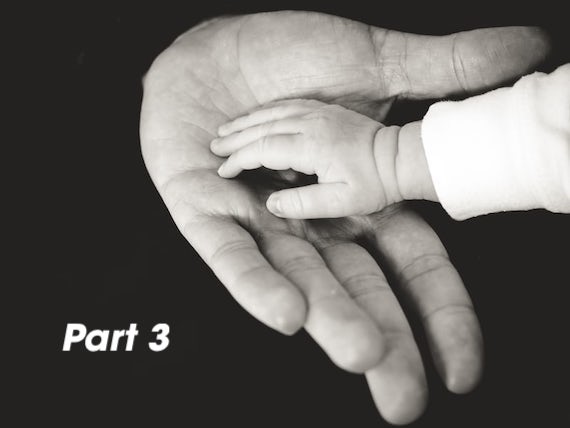
And so to conclude this series, it is important that we learn to be intentional about what we allow our children to be exposed to, and that we only allow them to be exposed to topics of conversation and influences that they are mature enough to handle. It is our job to ensure that they are protected from things that they are not yet mature enough to emotionally face. Here are a few areas to consider:
1) Protection from ‘disturbing’ events in the news:
Problem: many children that I have worked with often express intense fears and anxiety over things that they have seen on the television and/or in the news.
Just because ‘bad’ things happen all around the world each day, and we see these events in the media, we should not intentionally allow our young children to be exposed to highly sensitive issues that could cause them emotional harm, for example, natural disasters that result in many people dying, and/or shooting incidents in schools etc.
Before exposing our children to sensitive things, we must ask ourselves the following questions:
- Whose need am I meeting by sharing this information with my child?
- Will sharing this information build or crush their young spirit?
- Will it incite fear or faith?
And even when we believe that our children are ready and mature enough to handle such information, we must always ask ourselves the same questions, and be ready to acknowledge their feelings in response to what we are sharing. Everything we do should be intentional (not accidental or haphazardly) and should serve to teach, inspire, and build up their faith in God. This does not mean that we shelter them from absolutely everything but we must use wisdom and discretion. It is always better to ‘air on the side of caution’ then to cause unintentional harm to our children that is not easily remedied.
2) Protection from exposure to ‘adult issues’:
Problem: many of the children that I work with have been exposed to ‘adult issues’ that have caused them to carry adult-sized problems on their child-sized shoulders.
Many of our children today are forced to “grow up” quicker than God intends because of exposure to inappropriate things at a young age.
In an age where changes in the structure of the family (single-parent homes, divorce, blended families, step families etc…) are common, homes are filled with parents who are often overwhelmed in their role as a parent. When parents feel overwhelmed, instead of leading their young children, there is the greater tendency for them to lean on their young children, for emotional support and advice.
Our children should never be our confidant: the place where we offload our worries and burdens.
When we share our problems and worries with our young children unnecessarily, we give them the impression that we do not have what it takes to take care of them, and to keep them safe from harm. And so as a result they begin to feel insecure and anxious. If this becomes a regular habit, they will eventually take on the role of the parent and become a parentified child. This is where there is an unhealthy role reversal between parent and child, and so instead of the parent taking care of the child, the opposite is true.
Furthermore, discussions about serious family issues should not be discussed in front of our children unless absolutely necessary, and at a time when we can assure them that everything will be OK. And even then what we tell our young children should only ever be the basics, in a language that they can understand.We must otherwise keep these conversations private, and away from our children. Even if we think “oh they are in the other room playing and so they will not hear”, our children hear everything that is said. In fact, children are very sensitive to sensing when there is stress and conflict within the home and so will always be listening to everything that is going on. Let us be aware of this and so keep our children from over-hearing conversations that can wound their hearts.
Food for thought:
Our children have been given to us by God. We are stewards and so our responsibility is to hold them until they can crawl, and to watch them crawl until they can walk, and to be ready to catch them when they totter and fall. We are to protect them. We are to guard their hearts and minds. We are to write a beautiful tapestry of love and faith on their young lives, until they can stand up on their own two feet and learn to defend themselves (with God’s help) against the enemy’s schemes. Let us ask the Lord to help us in better protecting our children. Let us do everything we can to lead them into an encounter with Jesus so that they can become everything that God has created them to be.




